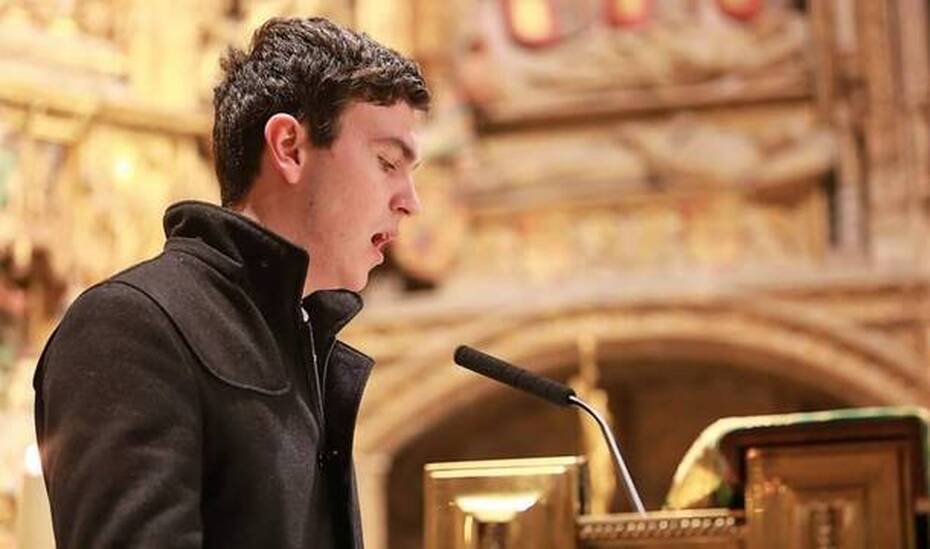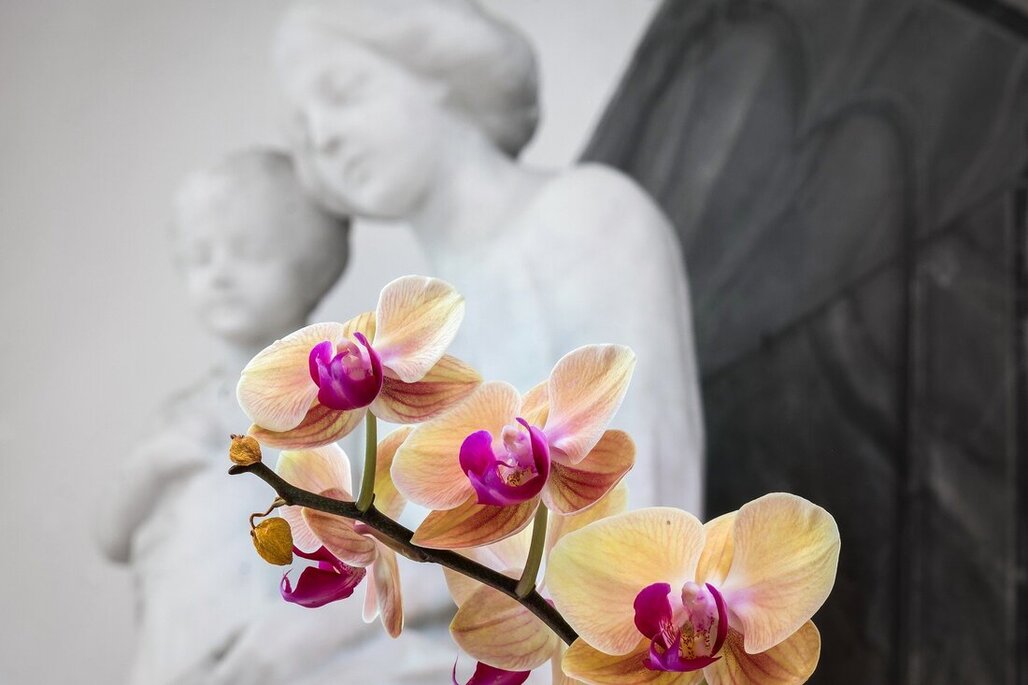Talents for Ministry
By Ursula O'Rourke and Maree Byron
Christians are called to be 'stewards of the mysteries of God' in all aspects of living their vocation as disciples of Jesus. As stewards, Christians discern
and accept their various gifts and talents, and commit themselves joyfully and generously to service of the community in exercising them. They respond to God's love and mercy by undertaking various ministries for building up the Body of Christ. In the celebration of the liturgy, there is a variety of liturgical ministries to be offered for the good of the worshipping assembly. It is through the sacraments of initiation that members of the assembly have been
anointed into the priesthood of the baptised. This common priesthood gives the faithful both the right and the responsibility of active participation in the
liturgy.
Recognition of our talents is a grateful acceptance of God's gifts to human beings. Now there are varieties of gifts, but the same Spirit; and there are varieties of services, but the same Lord,· and there are varieties of activities, but it is the same God who activates all of them in everyone. To each is given the manifestation of the Spirit for the common good (1 Cor 12:4-7). Making generous use of our talents praises and blesses God for the gifts bestowed and
demonstrates a sense of ownership and responsibility for what we have received from God's hand.
Ultimately the greatest manifestation of God's providence is our salvation in Jesus Christ. In baptism, we are joined to Christ and share in his passage from death to life. In Eucharist, we are swept up in his great offering on the cross. What does it mean to be stewards of God's gift which is Christ? Jesus came to serve, not to be served; all those called to Christian ministry continue this service, the saving work of Christ in the world. So ministry has its foundation in
Jesus. Christian ministry is the public activity of the baptised follower of Jesus Christ, flowing from the Spirit's charism and individual personality, on behalf of the Christian community, to witness to, serve and realise the kingdom of God (Thomas O'Meara, Theology of Ministry). Ministry inevitably moves outward to be on mission in the Church and in the world (General Introduction to Christian Initiation, 2).
and accept their various gifts and talents, and commit themselves joyfully and generously to service of the community in exercising them. They respond to God's love and mercy by undertaking various ministries for building up the Body of Christ. In the celebration of the liturgy, there is a variety of liturgical ministries to be offered for the good of the worshipping assembly. It is through the sacraments of initiation that members of the assembly have been
anointed into the priesthood of the baptised. This common priesthood gives the faithful both the right and the responsibility of active participation in the
liturgy.
Recognition of our talents is a grateful acceptance of God's gifts to human beings. Now there are varieties of gifts, but the same Spirit; and there are varieties of services, but the same Lord,· and there are varieties of activities, but it is the same God who activates all of them in everyone. To each is given the manifestation of the Spirit for the common good (1 Cor 12:4-7). Making generous use of our talents praises and blesses God for the gifts bestowed and
demonstrates a sense of ownership and responsibility for what we have received from God's hand.
Ultimately the greatest manifestation of God's providence is our salvation in Jesus Christ. In baptism, we are joined to Christ and share in his passage from death to life. In Eucharist, we are swept up in his great offering on the cross. What does it mean to be stewards of God's gift which is Christ? Jesus came to serve, not to be served; all those called to Christian ministry continue this service, the saving work of Christ in the world. So ministry has its foundation in
Jesus. Christian ministry is the public activity of the baptised follower of Jesus Christ, flowing from the Spirit's charism and individual personality, on behalf of the Christian community, to witness to, serve and realise the kingdom of God (Thomas O'Meara, Theology of Ministry). Ministry inevitably moves outward to be on mission in the Church and in the world (General Introduction to Christian Initiation, 2).
THE ASSEMBLY. Most broadly, when the people of God gather as the liturgical assembly they are united in faith and celebrate the saving mystery of Christ by actively participating in the liturgical event. Therefore, all members of the celebrating assembly by their very presence exercise a ministerial function within the action of the liturgy. Drawn together by the gift of the Holy Spirit, the gathered Church offers God worship, acknowledging the basic tenet of
stewardship that everything belongs to God.
COMMUNION MINISTERS. In Immensae Caritatis (1973) Paul VI permitted the local bishop to authorise lay ministers of holy communion in cases of necessity. They were to be prepared for the ministry and formally commissioned for their parish community for a limited time period. Their liturgical function is to assist in the distribution of communion within the Mass, to bring communion to the sick, the homebound and the dying. Sometimes they may also lead the assembly in the absence of a priest in a Liturgy of the Word with Communion. This ministry draws upon the talents of those with a sense of reverence and holiness, a deep faith, an empathy with the sick, and will demand time to visit regularly and to sit patiently with those who are ill.
MINISTERS OF THE WORD. Those who undertake the ministry of proclaiming the word of God in such a way that it touches the hearts of the assembly are challenged to live that word. In order for the proclaimed word to be effective, lectors must devote time to study and reflect on the word to allow its
power to change their lives. They need to hone their reading skills so that they can give life to the texts provided in the Lectionary. They must be qualified
and carefully prepared in order that the faithful will develop a warm and lively love for Scripture from listening to the reading of the sacred texts ... (GIRM
101). The ministry is a stewardship of God's gift of revelation through the Scriptures.
stewardship that everything belongs to God.
COMMUNION MINISTERS. In Immensae Caritatis (1973) Paul VI permitted the local bishop to authorise lay ministers of holy communion in cases of necessity. They were to be prepared for the ministry and formally commissioned for their parish community for a limited time period. Their liturgical function is to assist in the distribution of communion within the Mass, to bring communion to the sick, the homebound and the dying. Sometimes they may also lead the assembly in the absence of a priest in a Liturgy of the Word with Communion. This ministry draws upon the talents of those with a sense of reverence and holiness, a deep faith, an empathy with the sick, and will demand time to visit regularly and to sit patiently with those who are ill.
MINISTERS OF THE WORD. Those who undertake the ministry of proclaiming the word of God in such a way that it touches the hearts of the assembly are challenged to live that word. In order for the proclaimed word to be effective, lectors must devote time to study and reflect on the word to allow its
power to change their lives. They need to hone their reading skills so that they can give life to the texts provided in the Lectionary. They must be qualified
and carefully prepared in order that the faithful will develop a warm and lively love for Scripture from listening to the reading of the sacred texts ... (GIRM
101). The ministry is a stewardship of God's gift of revelation through the Scriptures.
COMMENTATOR. In a similar way, the commentator takes stewardship of the 'sacred mysteries' of the liturgy itself. The purpose of this ministry is to
introduce the faithful to the celebration and prepare them to understand it better. The commentator's remarks must be meticulously prepared and marked
by a simple brevity (GIRM 105b).
HOSPITALITY. Liturgy flourishes in a climate of hospitality, created where people are comfortable with one another, knowing they are participants in
the liturgy and not mere spectators. Hospitality ministers rejoice in special talents for recognising the individuality of each person, welcoming new
members or visitors, enabling the transition from the secular to the sacred. Thus they help constitute the liturgical assembly for worship and they assist it to pray and celebrate well. The ministry had a direct role in evoking thankfulness to God for the good gifts of creation.
ENVIRONMENT. The talents and time of the artist are particularly valuable in the worship life of the parish. Natural ability needs to be nourished with practice and training in order to have art forms which honour the prayer of the assembly and enhance the worship space. Ministries of care for the liturgical
environment are many: fine art and floral arrangement, architecture and acoustic design, sacristan and sewing. These ministries use human creativity to acknowledge God as creator and Lord of all.
introduce the faithful to the celebration and prepare them to understand it better. The commentator's remarks must be meticulously prepared and marked
by a simple brevity (GIRM 105b).
HOSPITALITY. Liturgy flourishes in a climate of hospitality, created where people are comfortable with one another, knowing they are participants in
the liturgy and not mere spectators. Hospitality ministers rejoice in special talents for recognising the individuality of each person, welcoming new
members or visitors, enabling the transition from the secular to the sacred. Thus they help constitute the liturgical assembly for worship and they assist it to pray and celebrate well. The ministry had a direct role in evoking thankfulness to God for the good gifts of creation.
ENVIRONMENT. The talents and time of the artist are particularly valuable in the worship life of the parish. Natural ability needs to be nourished with practice and training in order to have art forms which honour the prayer of the assembly and enhance the worship space. Ministries of care for the liturgical
environment are many: fine art and floral arrangement, architecture and acoustic design, sacristan and sewing. These ministries use human creativity to acknowledge God as creator and Lord of all.
PRESIDER. This ministry gives visible and vocal expression to the faith and prayer of the community, gathering the Church's prayer into one, and enabling
other ministers to carry out their roles in such a way as to bring about meaning and unity to the celebration. The presider communicates with the
assembly through the voice, eye contact, facial expressions, gestures, body posture and movement. The presider participates in the communal worship
by singing, being attentive to the word and meditating during moments of silent reflection. Significant time and talent need to be devoted to this
crucial ministry of service in the worshipping assembly.
SERVERS. Reverent, attentive, efficient - servers help the liturgy to run well and make it a prayerful experience for all those involved in the celebration.
It is important that servers know the rites and their flow. Their focus on the tasks to be done and their dignified postures and actions are signs that we value the Gift which is Christ present in the liturgy.
LITURGY COMMITTEE. Among all who are involved with regard to the rites, pastoral aspects and music, there should be harmony and diligence in the
effective preparation of each liturgical celebration in accord with the Missal and other liturgical books. This should take place under the direction of the
rector of the church and after consultation with the faithful about things that directly pertain to them (GIRM 111) Since their area of responsibility
includes not only the preparation of the liturgical celebrations and seasons but also the provision of formation for all liturgical ministers, the committee
will need a strong understanding of stewardship to be able to challenge people to use their time and talent for the enhancement of the prayer life of the
parish community.
One of the challenges flowing from being called to exercise a liturgical ministry is to live it daily within the broader community. Stewardship is ultimately a
spirituality for the whole of life. To support this vision of living in gratitude under God's providence, opportunities need to be created for a 'mystagogical'
reflection. How do I understand the ministry I am exercising? What are the challenges for me in living my ministry? What actions do I need to take to
deepen my living of the ministry?
Like good stewards of the manifold grace of God, serve one another with whatever gift each of you has received. Whoever speaks must do so as one speaking the very words of God; whoever serves must do so with the strength that God supplies, so that God may be glorified in all things through Jesus Christ. To him belong the glory and the power forever and ever. Amen. (1 Peter 4: 10-11)
other ministers to carry out their roles in such a way as to bring about meaning and unity to the celebration. The presider communicates with the
assembly through the voice, eye contact, facial expressions, gestures, body posture and movement. The presider participates in the communal worship
by singing, being attentive to the word and meditating during moments of silent reflection. Significant time and talent need to be devoted to this
crucial ministry of service in the worshipping assembly.
SERVERS. Reverent, attentive, efficient - servers help the liturgy to run well and make it a prayerful experience for all those involved in the celebration.
It is important that servers know the rites and their flow. Their focus on the tasks to be done and their dignified postures and actions are signs that we value the Gift which is Christ present in the liturgy.
LITURGY COMMITTEE. Among all who are involved with regard to the rites, pastoral aspects and music, there should be harmony and diligence in the
effective preparation of each liturgical celebration in accord with the Missal and other liturgical books. This should take place under the direction of the
rector of the church and after consultation with the faithful about things that directly pertain to them (GIRM 111) Since their area of responsibility
includes not only the preparation of the liturgical celebrations and seasons but also the provision of formation for all liturgical ministers, the committee
will need a strong understanding of stewardship to be able to challenge people to use their time and talent for the enhancement of the prayer life of the
parish community.
One of the challenges flowing from being called to exercise a liturgical ministry is to live it daily within the broader community. Stewardship is ultimately a
spirituality for the whole of life. To support this vision of living in gratitude under God's providence, opportunities need to be created for a 'mystagogical'
reflection. How do I understand the ministry I am exercising? What are the challenges for me in living my ministry? What actions do I need to take to
deepen my living of the ministry?
Like good stewards of the manifold grace of God, serve one another with whatever gift each of you has received. Whoever speaks must do so as one speaking the very words of God; whoever serves must do so with the strength that God supplies, so that God may be glorified in all things through Jesus Christ. To him belong the glory and the power forever and ever. Amen. (1 Peter 4: 10-11)
Ursula O'Rourke, a Sister of the Good Samaritan, studied liturgy at Notre Dame in USA and lectures at Holy Spirit Seminary in Brisbane.
Maree Byron, an Ursuline sister, was parish pastoral associate at Maroochydore on the Sunshine Coast for many years.
Maree Byron, an Ursuline sister, was parish pastoral associate at Maroochydore on the Sunshine Coast for many years.
See original article in Liturgy News Vol 36(4) .
Images from Unsplash and Pixabay. Used under license/with permission.
Images from Unsplash and Pixabay. Used under license/with permission.




